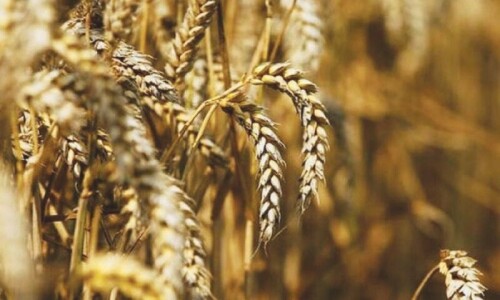Some years ago, Peshawar’s three leading bookstores lay close together in such a geometrical proximity on the small stretch of a lane called Arbab Road in the cantonment area that the threesome seemed to have formed a right angle. The little that we have by way fewer of literature these days is owed to those right times.
In 2014, as part of our efforts to resuscitate the dying tradition of reading in Khyber Pakhtunkhwa, we conducted a reading session at the residence of a respectable lady in Peshawar. At the end of the session, the host took us round to her bookshelf to show us a hardbound copy of one of the earliest editions of ‘Les Miserables’. ‘I am holding on to this like a relic,’ she informed us with a big smile.
Of the three, MJ Books was the first to breakaway after the owner shifted to some foreign land followed some years later by Saeed Book Bank when the owner, on the pretext of declining security situation and dwindling sales, shifted his store to Islamabad. Only London Books has survived though the prospects of it standing its ground for long looks bleak in view of frenzied construction taking place in the area where it is located.
There are valid reasons why reading good literary books could not become a part of our culture. Simply put, we failed to hold on to the few bookshops that we had with any kind of devotion as we helplessly found them slipping away from our grasp. It is fashionable to bewail the lack of our reading habits, but then how often do we care to hold a book in the presence of our growing up children and in fact do we ever care to take them round a bookshop. Reading books in the presence of children has a profound effect on the younger ones as they are known to emulating their parents, and lovingly at that.
There are now 35 administrative districts in KP which by all means should have been enough to testify to some kind of urbanisation taking place in the province. Sadly, however, the creation of new districts is little more than political gimmickry at great public expense, KP continues to be a rural land by any stretch of the definition that the word ‘rural’ allows.
The provisional findings of the census conducted in 2017 reveal that KP, together with the seven merged districts of the tribal belt, has more than 35 million people living on its fertile soil. Such a massive number of people ought to have been a boon considering the fact that many developed countries have attained their present level of progress with far fewer people.
But then we have to consider that all these developed countries, despite having stagnant or even negative population growth rates, have the distinction of selling millions of copies of famous, and not too famous, titles. On the other hand, a Pakistani author, stature and repute notwithstanding, cannot even dream of such sanguine prospects. Some of our best known present-day writers may not have been able to sell more than a couple of thousands of copies of their highly rated books to the readers at home.
While literature festivals in Karachi, Lahore and Islamabad do help to some extent keep afloat Pakistan’s image in the literary world, KP on the other hand cannot draw comfort even from such ephemeral events.
For its aforementioned size of population, KP has just one major bookstore in Peshawar which caters to the requirement of the avid readers. Oxford University Press has its sales offices in Peshawar and Abbottabad but Oxford deals only in its own publications. Rest of the province appears to be wearing a mantle of sepulchral silence.
Literature in general and fiction in particular is the least discussed of the subjects in KP. People, by and large, laughingly if not deprecatingly, refer to fiction as oft-repeated ‘qissekahaniya’. This kind of attitude now appears to be so deeply ingrained in the society that it literally discourages one from venturing any talk of books out of apprehension that it might be construed as showy.
The power of fiction is real although saying it brazenly may sound something like an oxymoron. We all know that Einstein produced the theory of relativity, but many of us do not know that the scientist had also read Dostoevsky’s ‘The Brothers Karamazov’, a 19th century’s philosophical Russian novel. Our off the cuff reply to any suggestion about reading a good work of fiction would be: Oh, I don’t have time for novels.
A TIME magazine’s recent cover story on Iran informed us that ‘Les Miserables’, by Hugo was Ali Khamenai’s favourite novel. Wise people worldwide draw strength from wonderful fiction. It was the power of fiction that Jews relied on to move the world to their cause. Naguib Mahfouz employed prose to enthral the world with the tales of Nile Valley’s civilisation. Will we also use good fiction to improve our lot?
Published in Dawn, March 9th, 2020












































Dear visitor, the comments section is undergoing an overhaul and will return soon.